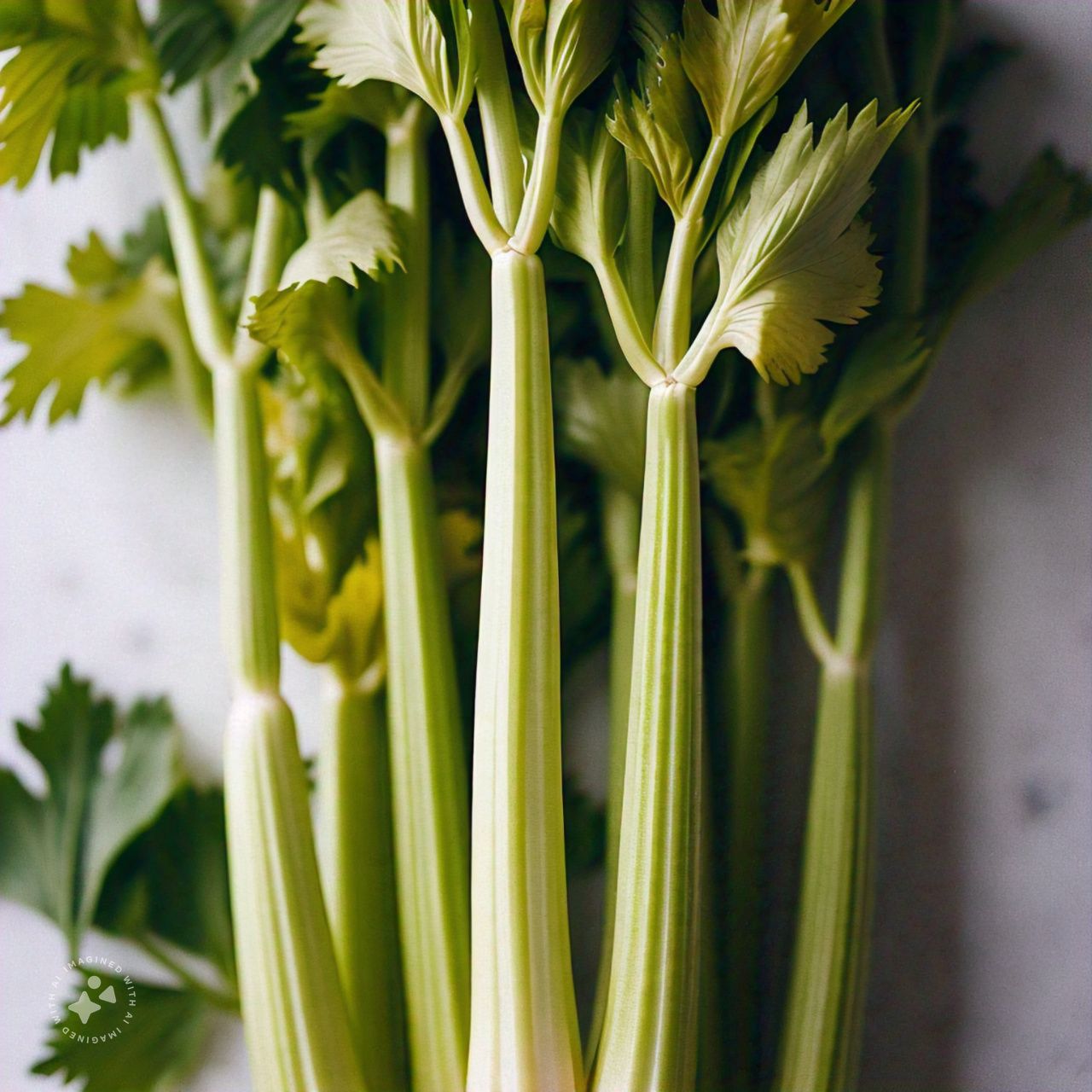Celery, a versatile and crunchy vegetable, is a staple in many kitchens worldwide. Belonging to the Apiaceae family, celery (Apium graveolens) is known for its long, fibrous stalks and mild flavor. It’s a common ingredient in soups, salads, and juices, revered for its nutritional benefits and culinary versatility.
Benefits of Celery
Nutritional Benefits
Celery is not just a low-calorie snack; it’s a powerhouse of nutrients:
-
Rich in Antioxidants: Contains flavonoids, vitamin C, and beta-carotene, which combat oxidative stress.
-
High Water Content: Helps keep the body hydrated and supports digestion.
-
Loaded with Fiber: Promotes gut health and prevents constipation.
Health Benefits
-
Reduces Inflammation: Phytonutrients in celery help reduce inflammation, benefiting joint and heart health.
-
Supports Cardiovascular Health: Contains potassium and phthalides, which help lower blood pressure.
-
Aids Weight Management: Low in calories but high in fiber, making it a perfect snack for weight loss.
Types of Celery
Celery comes in various forms, each with unique characteristics:
Popular Varieties:
-
Pascal Celery: Commonly found in grocery stores; crunchy and mild-flavored.
-
Leaf Celery: Stronger flavor with a leafy appearance, often used in Asian dishes.
-
Celeriac: The root variety, used in soups and purees.
Comparison Table:
| Type | Flavor Profile | Best Uses |
|---|---|---|
| Pascal Celery | Mild, crunchy | Salads, snacks |
| Leaf Celery | Strong, aromatic | Soups, stir-fries |
| Celeriac | Earthy, nutty | Purees, mashes |
Seasonal and Holiday Favorites with Celery
Celery is a versatile ingredient that can enhance your cooking during any season. Here are some seasonal and holiday favorites:
Spring:
-
Celery and Chickpea Salad: Light and refreshing.
-
Green Smoothie: Blend celery with spinach, cucumber, and lime.
Summer:
-
Celery Sticks with Hummus: A cooling snack for hot days.
-
Celery Gazpacho: A chilled soup perfect for summer.
Fall:
-
Celery and Apple Slaw: A tangy side dish.
-
Celery Root Soup: Creamy and comforting.
Winter:
-
Stuffed Celery Appetizers: Perfect for holiday parties.
-
Celery and Lentil Stew: A hearty and warming dish.
Cooking Tips for Celery
To make the most of celery in your kitchen, consider these tips:
-
Choose Fresh Stalks: Look for bright green stalks that are firm and crisp.
-
Prep and Store Properly: Wash thoroughly and store in an airtight container in the fridge.
-
Don’t Waste the Leaves: Celery leaves are flavorful and can be used in soups or as a garnish.
-
Cooking Methods: Celery can be eaten raw, sautéed, or roasted for different textures and flavors.
Impact of Food Waste on the Environment
Reducing celery waste is essential for sustainability. Here’s why:
-
Greenhouse Gas Emissions: Organic waste like celery decomposes in landfills, releasing methane gas.
-
Resource Conservation: Growing celery requires water and energy; wasting it wastes these resources.
-
Creative Uses for Leftovers: Use celery trimmings for making vegetable stock or compost them to enrich soil.
FAQs About Celery
1. Is celery good for hydration?
Yes! Celery is made up of about 95% water, making it an excellent choice for staying hydrated.
2. Can I freeze celery?
Yes, celery can be chopped and frozen for use in soups and stews. However, it may lose its crispness when thawed.
3. Why is celery sometimes bitter?
Bitter celery can result from overmature plants or improper storage. Opt for fresh, young stalks for the best flavor.
Latest News and Information on Celery
-
Celery in Urban Farming: Advances in hydroponic and vertical farming are making celery cultivation more efficient.
-
Health Studies: Recent research highlights celery’s potential in reducing cholesterol levels and managing diabetes.





Share:
Mix Herbs: A Versatile Addition to Your Kitchen
Rosemary: A Timeless Herb for Flavor and Health